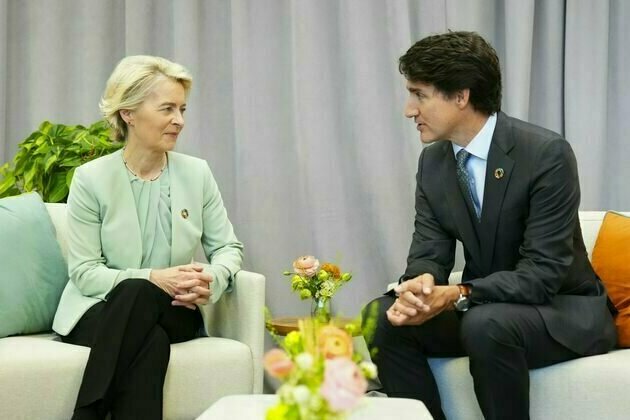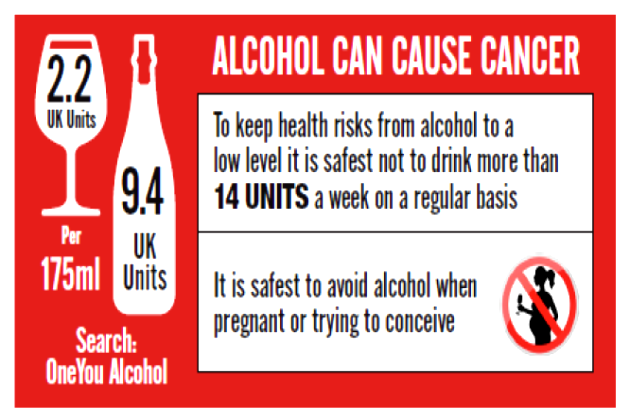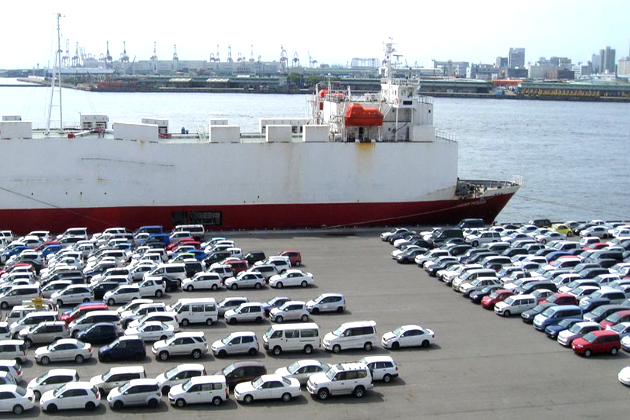What Canada can learn from the European Union about dealing with chaos and crises
The Conversation
17 Feb 2025, 12:38 GMT+10

As United States President Donald Trump continues to threaten Canada's economic and political sovereignty, some observers have floated the idea of Canada becoming a member of the European Union.
Since there is no feasible pathway to EU membership in the short term, current efforts rightly focus on strengthening Canada's existing trade relationships, most notably through the Canada-European Union Comprehensive Economic and Trade Agreement.
But something else is often overlooked: Canada should also learn from the EU how to cope with the monumental challenges ahead. Europe is not only less vulnerable than Canada due to its geographic position and economic power, it's also more resilient.
Unlike "Team Canada," "Europe United" has already crafted a multi-pronged policy framework to encounter the risks arising from a fundamentally changing geopolitical environment over the long term. The EU also has a more robust institutional framework for intergovernmental co-operation.
Under the leadership of President Ursula von der Leyen, the European Commission has launched a cascade of relatively coherent policies aimed at facilitating three broad goals: decarbonization, economic sovereignty and national security.
Key pillars of this new policy framework are the European Green Deal of 2019, the European Industrial Strategy of 2020, the European Economic Security Strategy of 2023 and the 2024 European Defence Industrial Strategy.
These policy initiatives have been continuously updated, fine-tuned and aligned with each other. They have created an umbrella that enables the EU and its member states to simultaneously promote the green transition, strengthen the internal market and domestic industries as well as reduce economic and security risks.
The geopolitical and industrial changes in the EU resemble what used to exist in Canada as well: national policies - the conscious, nation-building initiatives of successive federal governments.
But Canada has lost the ability to plan strategically for the long term and now responds to every crisis in a reactive, punctuated manner. In doing so, Canadian officials address symptoms without tackling root causes.
The institutional architecture of the EU also furnishes governments with more capacity to collaborate. In all federal systems, most policies are largely shared, which is why intergovernmental co-ordination is important to buttress and consolidate such innovations.
Read more: Canada-U.S. history provides lessons on how Canada can deal with a hostile Donald Trump
Notably, the Council of the European Union plays a key role for co-ordinating and negotiating policies, in addition to its function as the main decision-making body (together with the European Parliament).
It is composed of ministers of the EU member states. Accordingly, it works in different configurations, depending on the portfolio. The head of governments themselves meet regularly through a separate institution, the European Council.
In Canada, by contrast, federal intergovernmental institutions are fragile or don't even exist, even though they're comparatively strong on the municipal level.
Municipalities co-ordinate through the Federation of Canadian Municipalities (FCM), which was established in 1901. But it was not until 2004 that provinces and territories established the Council of the Federation. This body, however, has remained weak, with very little administrative support.
What's even more striking is that there is no formalized, institutionalized framework at all at the federal level. The First Ministers' Conference meetings are held at the discretion of the prime minister. In their communique following a Council of the Federation meeting in November 2023, premiers complained that "the prime minister has not convened a full in-person First Ministers' Meeting since December 2018 despite repeated requests from premiers."
Widespread tariffs against Canada may be on hold until March, but there is no way back. As Canadians experience their very own "Zeitenwende" - the end of an era - in the wake of Trump's desire to absorb Canada into the U.S., the country's leaders should draw two lessons from the EU.
On the policy level, Canada does need a new "national policy," as I have argued previously.
More than 40 years ago, the Macdonald Commission paved the way for a major transformative shift in Canadian policy-making, including free trade with the U.S. But since the global financial crisis of 2007-2008, it has become increasingly clear that this model of socioeconomic development is outdated.
Yet the model has never been replaced. Unlike the EU, Canadians have comforted themselves with patchwork policies instead of crafting a new, all-encompassing approach.
The challenges the EU and Canada face are similar, but Canada needs to find its own response. Forging a new model will require mobilizing and aligning key sectors like trade, infrastructure and industrial policy in a coherent manner.
On the institutional level, Canada must - finally - institutionalize Team Canada. It's a positive development that First Ministers' Conference meetings have resumed, but an ad hoc approach to intergovernmental collaboration is no longer sufficient.
Team Canada may work under pressure when facing a short-term threat. Without a stronger institutional foundation, however, Canada won't be able to consolidate a new national policy over the long term.
The EU has accomplished a remarkable resurgence, despite all remaining difficulties. Rather than chasing the idea of joining the EU, Canada should use the European example as a road map for enhancing its policy and governance capacities.
 Share
Share
 Tweet
Tweet
 Share
Share
 Flip
Flip
 Email
Email
Watch latest videos
Subscribe and Follow
Get a daily dose of Africa Leader news through our daily email, its complimentary and keeps you fully up to date with world and business news as well.
News RELEASES
Publish news of your business, community or sports group, personnel appointments, major event and more by submitting a news release to Africa Leader.
More InformationInternational
SectionUS citizen detained in Moscow on drug smuggling charges
MOSCOW, Russia: A U.S. citizen has been detained at a Moscow airport on drug smuggling charges, according to a report by Russian Telegram...
Deadly gas explosion in Taiwan mall kills 4, injures 26
TAIPEI, Taiwan: A deadly gas explosion tore through a department store food court in Taichung, Taiwan, killing four people and injuring...
Navy jet crashes off San Diego; crew ejects, rescued by boat
LOS ANGELES, California: Two crew members ejected from a Navy jet before it crashed into the ocean near San Diego this week. A sportfishing...
WHO urges tobacco-style warnings on alcohol in Europe
GENEVA, Switzerland: The World Health Organization is pushing for bold, tobacco-style warning labels on alcoholic beverages across...
US judge approves extradition of Turkish author and son for car crash
BOSTON, Massachusetts: A U.S. judge has ruled that a Turkish author and her son can be sent back to Turkey to face charges. The son...
New York confirms first case of new mpox strain
NEW YORK CITY, New York: The New York State Department of Health has confirmed its first case of a new mpox strain, increasing concerns...
Business
SectionU.S. stock markets finish in black despite early losses
NEW YORK, New York - U.S. stocks crept into the black in late trading Tuesday after spending most of the day in negative territory....
Taiwan promises to address US chip concerns, boost trade
TAIPEI, Taiwan: Taiwan has vowed to address U.S. concerns over the semiconductor industry while increasing investment and trade with...
US Transportation Chief summons Boeing CEO over safety concerns
WASHINGTON, D.C.: U.S. Transportation Secretary Sean Duffy said this week that he asked Boeing's CEO to come to Washington, D.C., as...
Tesla Cybertruck crash raises concerns over self-driving reliability
RENO, Nevada: A Tesla Cybertruck crashed in Reno, Nevada, while using the Full Self-Driving (FSD) feature. The truck failed to merge...
Global stocks close higher, U.S. dollar edges higher
London, UK - Monday's trading session ended with a diverse range of performances across global markets, as major indices posted modest...
Port of Brunswick in Georgia leads in auto shipments in US for 2024
SAVANNAH, Georgia: The Port of Brunswick became the top U.S. seaport for automobiles in 2024, growing rapidly and surpassing the Port...













